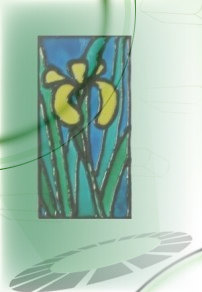


 |
All Real Living is Meeting Surely one of the most profound pieces of writing of the twentieth century is "I and Thou" by Martin Buber, from which comes this title. In the original English translation of 1923, its style echoes the poetry of the King James bible. And the second and third parts witness to the deeply religious life of its author – he was responsible in part for the revival of the Hasidim as a Jewish way of life. But the first part can be read as an insight into humankind from the basis of their humanity. Its essence is our sense of ourselves when we use the word ‘I’. For all we may think of ourselves as a unity – “there’s only one of me”, – our ‘being in the world’ takes two forms, which are reflected in the ‘I’ that we casually use to mean the centre of our world. Really ‘I’ cannot be a one-syllable word, it has to have two forms ‘I-It’ (where ‘it’ could be ‘he’ or ‘she’ or ‘they’) and ‘I-Thou’. ‘Thou’ sounds archaic to modern ears, but its use is necessary because it can only be singular, where our modern form ‘you’ can be singular, plural, or even impersonal. Mostly we only know ‘I-It’, because we deal in a world of objects. We represent people and things to ourselves by how they look, how they sound, what we feel about them, what we think about them. This way we can differentiate ourselves – I am not ‘it’, ‘her’, ‘him’, ‘them’ –, it is one of the ways we give ourselves an identity and feel safe. It is the world of our experience, the world we describe and also the world which describes us. But another way is possible, a way which overcomes the ‘fixity’ of the world of experience, fixity which comes from the fact that, the moment after we represent a thing to ourselves, it is history. With this fixity we are always living one step (at least) behind… we are using history to fashion our today, our now. And we have lost the flow. ‘I-Thou’ speaks from how we feel ourselves when we do not describe or represent the other, but simply allow ourselves to be with them. It is my sense of myself being present in the presence of another, and no more. It is a meeting which isn’t a meeting, because nothing is delimited by description and so there is nothing to meet. And because no line has been drawn, nothing has been frozen in time, nothing cast as history, and we can be with the flow. It is true relation – without ego. In Buber’s conception, this potential is individual and intensely, spiritually personal. But for today’s world, as in every age of man, we could move beyond the individual… “Every war, every conflict between human beings has happened because of a disagreement about names. It’s such an unnecessary foolishness, because just beyond the arguing, there’s a long table of companionship, set, and waiting for us to sit down.” Jalal ad-Din Rumi, from “One-handed basket weaving” |
|
|
|
|
|
|||||||||||||||||||||||||||
|
|
|
||||||||||||||||||||||||||
|
|
|||||||||||||||||||||||||||
| Site Map |